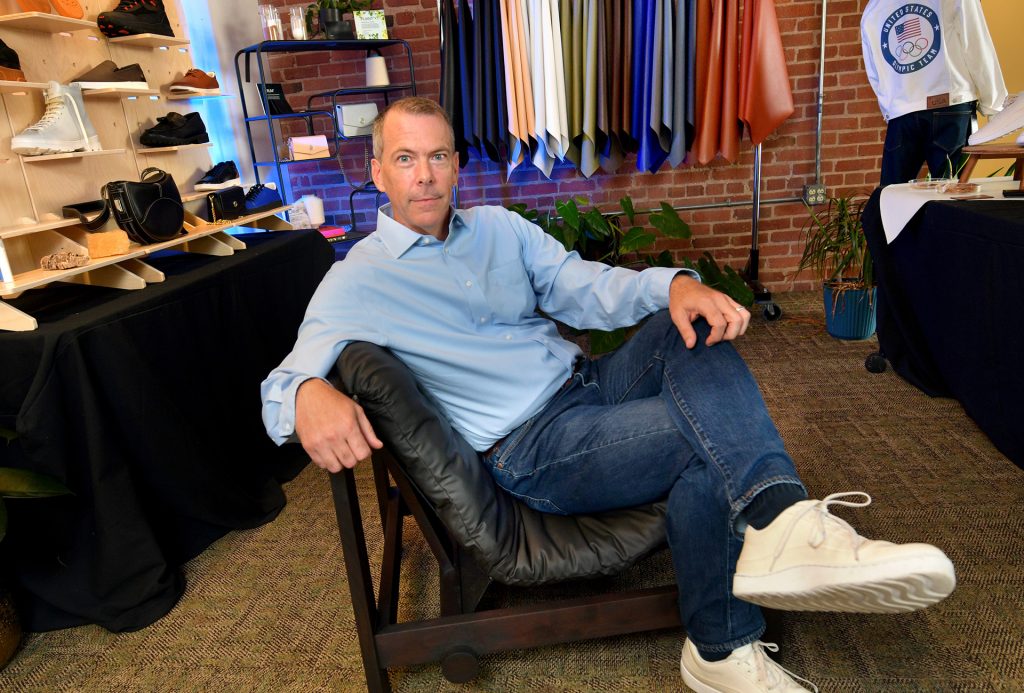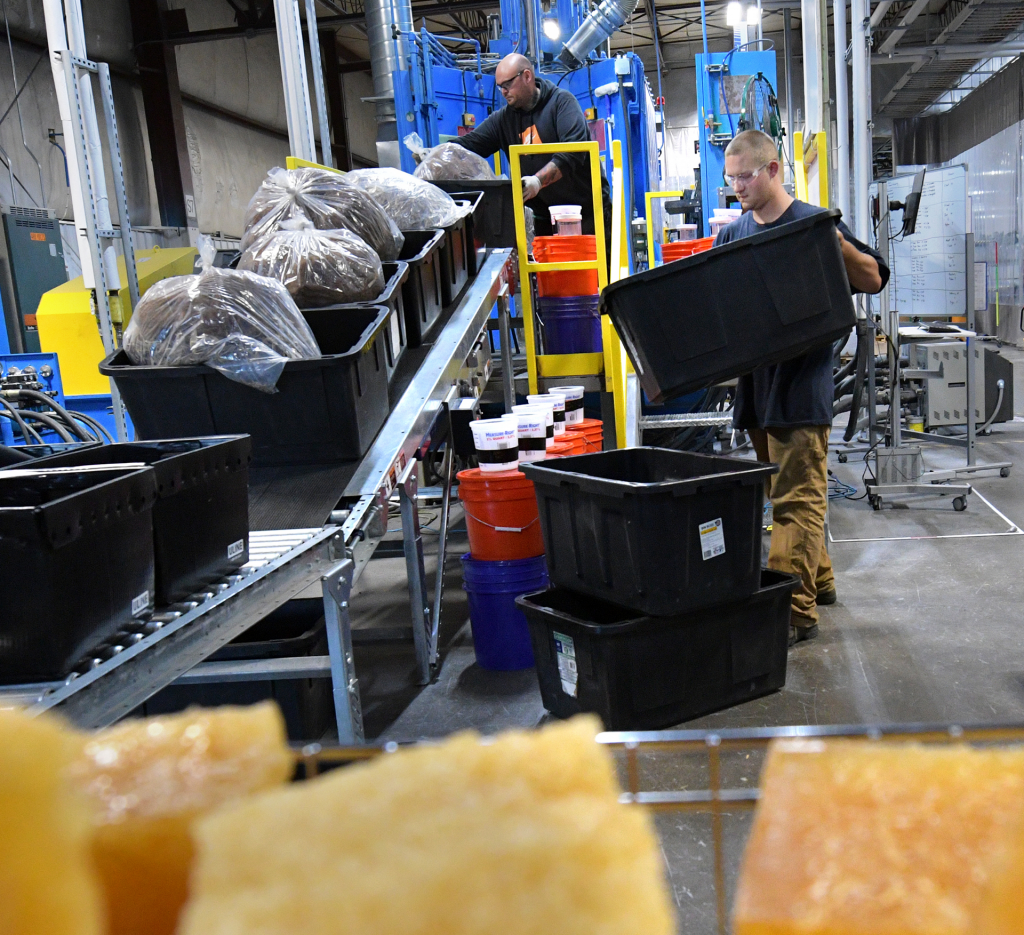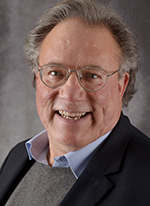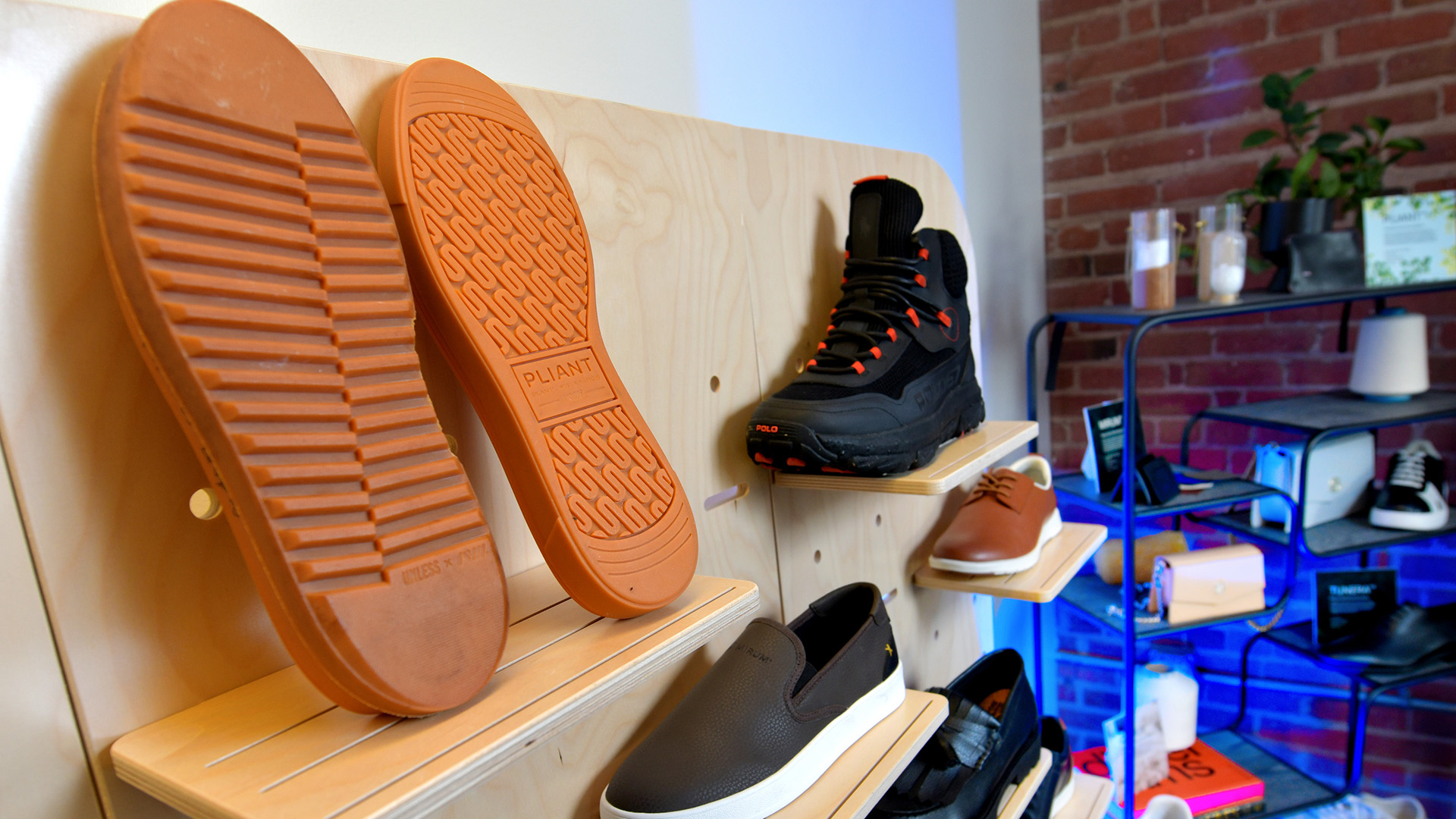Promising Peoria start-up Natural Fiber Welding is going global but ‘not spending any time looking for a new headquarters’
For Natural Fiber Welding, exporting has never been a question of “if” but “when.”
That future is now, as NFW — which creates sustainable, plant-based textiles intended to replace leather and plastics — is the Turner Center’s New Exporter of the Year.

“From early on, NFW recognized that exports would one day eclipse their U.S. sales,” Turner stated in its justification for the award. “Its customer base is dominated by multinationals and global players in the textile, automotive and apparel industries. Moreover, the need to address dependence on petroleum-based, man-made materials is a challenge that will necessitate NFW becoming increasingly involved in the global value chain and international commerce.”

‘There’s money in doing good’
Indeed, the surge in exports has NFW making plans to launch manufacturing hubs overseas in order to be closer to customers that make shoes, wallets, purses and other goods.
“We are working with global fashion partners,” said Steve Zika, company president.
That development is no threat to Peoria, he said: The company intends to keep its headquarters and R&D here. Plus, local manufacturing would be maintained and perhaps increased, he said.
“As we grow, we hope to have as much manufacturing, as practical, in Peoria,” Zika said.
That’s good news to local marketing cheerleaders such as Chris Setti, CEO of the Greater Peoria Economic Development Council. Setti often touts NFW as a cutting-edge manufacturer with a bright future and social conscience.
“I think they embody what can be the best about American capitalism and American ingenuity,” Setti said. “They’re very conscious of the impact they’re having.
“There’s money in doing good.”
The ah-hah moment
NFW was founded in 2015 by CEO Luke Haverhals, a Bradley University chemistry professor who previously had conducted research for the U.S. Naval Academy. In Annapolis, Maryland, he had an ah-hah moment when he found a way to weld natural fibers together to make composite materials that, in terms of durability and performance, could rival leather as well as synthetics such as polyester. Unlike the latter, Haverhal’s breakthrough materials are plant-based and eco-friendly.

By 2017, while based at the business incubator Peoria NEXT, 801 W. Main St., NFW had grown to a dozen employees. It expanded further, basing operations at 6533 N. Galena Road, then added more offices at 401 SW Water St. and manufacturing space at 801 SW Jefferson St.
In 2022, NFW received $85 million in series B funding from investors that included Ralph Lauren and BMW. That same year, Haverhals and Chief Technology Officer Aaron Amstutz won the prestigious Intellectual Property Owners Education Foundation’s Inventor of the Year award. The organization lauded them for “creating technologies that unearth nature’s potential” and for inventing “categorically new material families that are naturally low carbon and completely circular” — in other words, good for the environment.
Thanks to that technology, NFW has created four core materials: Clarus, Pliant, Tunera and Mirum. The latter, especially for high-end sneakers, has prompted attention from the textile industry, as well as news media.
Flying high
Late last year, the trendy shoe brand Allbirds, which boasts of its commitment to sustainability, launched a new line of Miren-based footwear called Pacers. Allbirds co-founder Joey Zwillinger told CBS News, “We scoured the earth for the best alternative (material) we could find.” With that, the network panned to a shot of the Peoria skyline before launching into a tour of NFW.
Zika said the company, though not a household name, is well known and regarded by manufacturers intent on sustainable alternatives and solutions.
“Fashion brands are aware if you want sustainable materials, you have to give NFW a good look,” Zika said.
‘There could be a vision of this company that has 3,000 people, maybe half in Peoria’
— Steve Zika
With most finished garments made overseas, especially in Asia, exporting was inevitable for NFW. For example, the shoe company Unless is based in America but the footwear is cobbled together in Italy. Therefore, though NFW is dealing with a U.S. firm, the materials are sent to the Italian manufacturer. For BMW, which has multiple factories in multiple countries, NFW ships seat-making materials to the automaker’s factories in America and Germany.
“In one case we’re exporting. In one case we’re not,” Zika said.
A Peoria base, a global reach
As NFW’s outreach expands, the company likely will establish manufacturing points overseas, likely by partnering with existing factories. That way, NFW can reduce shipping costs. Such growth will help the company at all points, Zika said.
NFW has a workforce of “more than 200,” Zika said. Though a smattering of employees are stationed outside Peoria — including locations in California, New York, Europe and Vietnam — 90% of its workforce is in central Illinois, Zika said. That percentage could change, but not to Peoria’s detriment, Zika said.
“There could be a vision of this company that has 3,000 people, maybe half in Peoria,” Zika said. “That’s a good thing. It creates more jobs locally.
“The best version of NFW is a global company that has employees around the globe.”
Even under that scenario, the plan is to keep Peoria as NFW’s base, Zika said
“The company is not spending any time looking for a new headquarters,” Zika said.
That’s likely music to the ears of many here in central Illinois, especially after comments published in the Journal Star about a year ago seemed to hint that NFW might be looking elsewhere. Asked then if NFW intended to stay in Peoria, Haverhals raised eyebrows by suggesting the decision could be determined by local officials and investors. Though not offering specifics, he urged local leaders to “think about the structural things that need to be fixed around here” before adding: “What I’m offering to Peoria is an ongoing dialogue just like I have an ongoing dialogue with my wife daily about the things we need to do together to stay happily married.”
Those who may have interpreted that as a commentary on the NFW-Peoria marriage can relax, indicated Zika.
“I think it was an invitation to be collaborative and creative,” he said. “I think it was a challenge.”
Setti said Peoria intends to remain hospitable and helpful to NFW.
“We talk to them all the time: what’s their future and what they need,” said Setti before expressing confidence that “they’re going to be a greater part of the regional economy.”
Growing pains
NFW’s path forward has included a few bumps. The company had expected to have 300 employees by year’s end, 2022. That did not happen, and twice so far this year — in April and in July — NFW trimmed its workforce by 10%. Zika points to a recalibration of business priorities.
“We grew really, really fast,” he said. “As the company evolves, you need different types of skills.”
According to the Turner Center, NFW had $3.4 million in international sales last year. Zika declined to further discuss company finances, but conceded that the company is still operating in the red, though on a trajectory toward profitability.
NFW is on a trajectory toward profitability, but for now, ‘we depend on investors’
— Steve Zika
“We’re not a cash-flow-positive company,” he explained. “We depend on investors.”
As for next steps, Zika said NFW is working on newer textile materials. But the biggest thrust will be expanding production to meet market demands. The global leather market is $100 billion, the synthetic fibers market approaching $70 billion. Opportunities are increasing for sustainable alternatives.
“There are significant levels of scale we need to achieve,” Zika said. “What’s next for NFW is a long path to achieve that growth. We have a lot of hard work to do over years and years.”





